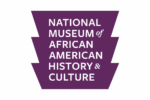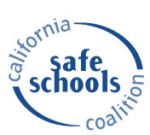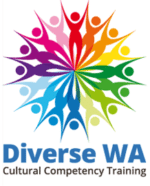Diversity, Equality, Cultural Competency
Juneteenth is a time for celebration and reflection with the whole family. For young children, the abstract concept of freedom and the hard history of slavery can be challenging to grasp. NMAAHC’s early childhood education team offers the following resources to support young children’s understanding and celebration of Juneteenth: a guide on how to talk about slavery and freedom in age appropriate ways, an activity to inspire hope and activism, and a children’s book and online resources list.
The Trauma and Learning Policy Initiative’s (TLPI) mission is to ensure that children traumatized by exposure to family violence and other adverse childhood experiences succeed in school. To accomplish this mission, TLPI engages in a host of advocacy strategies including: providing support to schools to become trauma-sensitive environments; research and report writing; legislative and administrative advocacy for laws, regulations, and policies that support schools to develop trauma-sensitive environments; coalition building; outreach and education; and limited individual case representation in special education where a child’s traumatic experiences are interfacing with his or her disabilities.
This toolkit is meant for anyone who feels there is a lack of productive discourse around issues of diversity and the role of identity in social relationships, both on a micro (individual) and macro (communal) level. Perhaps you are a teacher, youth group facilitator, student affairs personnel or manage a team that works with an underserved population. Training of this kind can provide historical context about the politics of identity and the dynamics of power and privilege or help build greater self-awareness.
Resources to promote equality and diversity in the classroom for teachers can be found here.
Teaching Tolerance is dedicated to reducing prejudice, improving intergroup relations and supporting equitable school experiences for our nation’s children.
We provide free educational materials to teachers and other school practitioners in the U.S. and Canada. Our self-titled magazine is sent to 450,000 educators twice annually, and tens of thousands of educators use our free curricular kits.
This blog entry on teachingdegree.org has information and resources about teaching equality in the classroom.
Explore Black History Month with your students using lessons, podcasts, activities, and primary sources curated by Smithsonian History Explorer.
Examine collections of the Museum’s key resources on major themes in American history and social studies teaching. Additional resources can be found in the main search areas of their website.
Today, Scholastic books and educational materials are in tens of thousands of schools and tens of millions of homes worldwide, helping to Open a World of Possible for children across the globe.
The Safe Schools Coalition offers resources as a starting point for educators, parents/guardians and youth.
From the Oregon State Department of Education, this website provides a variety of resources about cultural competency.
An article of the importance of out-of-school time cultural competence.
Use these tools produced by National Geographic to help provocate thinking, spur dialogues, and guide conversations regarding race, diversity, inclusion, and justice.









